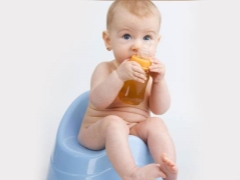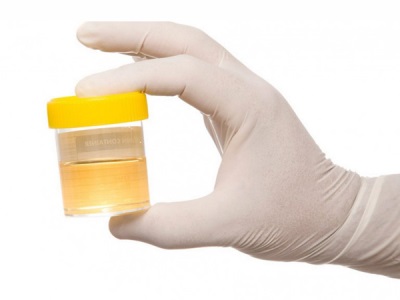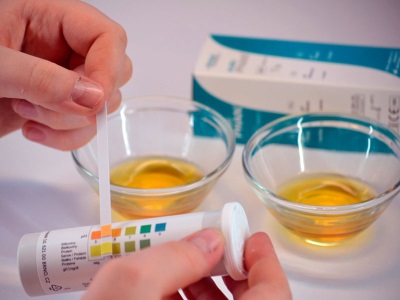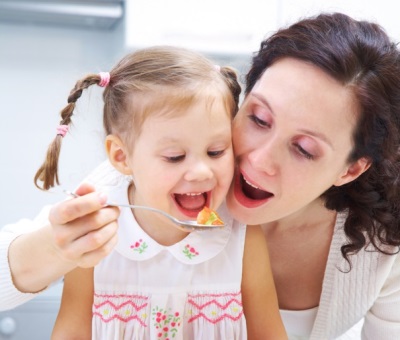Strong smell of urine in a child
In a newborn baby, urine has no odor, but with age it becomes more like the urine of an adult and gets odor. Parents should know which one is normal and when it is necessary to guard.
What should be normal?
The smell in the urine of a child is normally quite specific, but not sharp. That is why the appearance of a very pronounced or unpleasant smell always evokes the thought of illness in a baby. Such changes can not be ignored, although it happens that the child is completely healthy.
Smells like ammonia
The appearance of such a smell indicates a violation of the health of the baby. First you need to exclude the presence of diabetes and acetonemia. In diabetes, urine can acquire not only ammonia smell, but resemble apple cider vinegar or ammonia. At the same time, the child will also have other signs of the disease, for example, increased thirst, loss of body weight, dry skin, disturbances in the frequency of urination, and others. It may also appear when urinary tract infection.
The smell of acetone
The appearance of the smell of acetone indicates increased secretion urine ketone bodies child, what happens when a large amount of ketones in the blood. Increasing the level of acetone in the blood is due to various factors, including emotional or physical stress. If your child already had cases of acetone, you should make sure that the baby does not have a long hunger or overwork. When the child is tired, give him a sweet food that will prevent the appearance of ketones.
Smells like stale fish
The appearance of an unpleasant odor resembling a rotten fish is characteristic of trimethylaminuria. This is a genetic disease in which trimethylamine accumulates in the body, causing the appearance of fishy odor from urine, sweat, exhaled air and human skin.
With other genetic pathologies, the smell of urine also becomes unpleasant and begins to resemble mold or mice (indicates phenylketonuria), burnt sugar (it happens with leucine), cabbage (noted during tyrosinemia).
Possible reasons
The following factors lead to a change in the smell of a child’s urine:
- Change in water balance. A child may drink too little fluid or lose it, for example, when vomiting or sweating in hot weather. Also the cause may be difficulty of nasal breathing.
- Dietary changes. The urine of a starving child, as well as a baby, whose menu has too much fast food, sweet food, fatty protein foods, seafood, spicy, has an unpleasant smell. It can also change if the child ate horseradish, garlic, asparagus or cabbage. In an infant, a new product may be affected by a new food or a new mixture, as well as a change in the diet of the nursing mother.
- Metabolic disorders, caused by genetic pathologies.
- Antibiotics and other medicines.
- Poor diaper or stale linen. In this case, the smell will be unpleasant in the morning.
- Rickets. It causes a change in the urine odor of a baby up to one year old, and also manifests itself with sweating of the palms, poor appetite, disturbed sleep, and other symptoms of a lack of vitamin D.
- Hormonal changes with hormonal adolescent adjustment. This is a temporary phenomenon, but it is important for parents to accustom the teenager to body care and hygiene rules.
- Infectious diseases of the excretory system. An unpleasant smell appears in cystitis, as well as in urethritis, pyelonephritis and other inflammations.
- Diabetes. Urine with this disease is excreted in large quantities, while it gives ammonia.
- Liver disease. Not only becomes unpleasantly smelling, but also acquires a dark color.
What to do?
A one-off change of smell does not require any action, especially if parents notice the effect of nutrition. If you experience a strong odor of urine for several days, you should contact your pediatrician and pass on the blood and urine of the child for analysis. When the smell of ammonia must be determined baby's blood sugar.
If you suspect the presence in the urine of acetoneYou can verify this even at home, using special test strips. With a positive reaction to acetone, first of all you need to give the child glucose. You can give your baby a drink of glucose from an ampoule or chew tablets with glucose, and also make a decoction of raisins or warm tea with honey for the child.
If you associate the situation with dehydration, it is important to give the child more drink. This is especially important in the presence of diarrhea or vomiting, as well as in diseases with high body temperature. In these cases, it is extremely important to avoid large wastes of fluid, and everything normalizes by itself.












